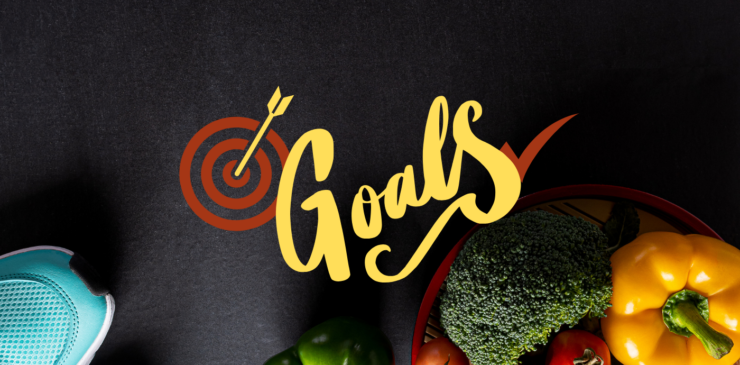However, in all my years of practice as a nutritionist, I’ve learned that consistency is one of the hardest things to maintain.
Over the years, I’ve had clients, colleagues, and friends set and achieve incredible goals with regard to their weight gain/loss, neuropathic pain, bowel routines, energy levels and mood, to name a few. Yet, despite their accomplishments and how good they are feeling and functioning, I often get callbacks to tell me it’s all gone out the window and can I help them get back on track. To help them get back, I ask them to explain what led to their digression. The majority of responses I hear is that they were doing so well, they decided to “just” have a little bit of this or a “just” little bit of that. Then, before they knew it, they were right back where they started.
It’s not hard to understand why we are so easily tempted by these little “justs”. We are surrounded by delicious distractions and inundated with clever and persuasive marketing.
So, here are some keys to help you maintain consistency with your nutritional goals:
 Set Clear Personal Goals: Everyone has their reasons for setting a nutrition goal. Really think about why your goal is important to YOU. Understanding your true motivation will help keep you focused and on track.
Set Clear Personal Goals: Everyone has their reasons for setting a nutrition goal. Really think about why your goal is important to YOU. Understanding your true motivation will help keep you focused and on track.
 Action Changes Behaviour More Effectively than Words: This is the advice of a brilliant colleague and Behaviour Therapist whom I have consulted on this consistency issue. While it may seem like a no-brainer, it’s not. Countless times, people have told me that they get up in the morning with the best of intentions but, part way through the day, lose motivation and tell themselves they’ll start tomorrow… or Monday (we’ve all been there). According to my colleague, you can tell yourself all sorts of positive, reaffirming things, but unless you take some action, chances are you won’t follow through. Even if the action is simply taking something healthy out of the freezer for dinner first thing in the morning, you’ve got the ball rolling, and you’ll be less likely to order a pizza when you get home later from work. Following this advice will help you follow through with #3 & #4 below.
Action Changes Behaviour More Effectively than Words: This is the advice of a brilliant colleague and Behaviour Therapist whom I have consulted on this consistency issue. While it may seem like a no-brainer, it’s not. Countless times, people have told me that they get up in the morning with the best of intentions but, part way through the day, lose motivation and tell themselves they’ll start tomorrow… or Monday (we’ve all been there). According to my colleague, you can tell yourself all sorts of positive, reaffirming things, but unless you take some action, chances are you won’t follow through. Even if the action is simply taking something healthy out of the freezer for dinner first thing in the morning, you’ve got the ball rolling, and you’ll be less likely to order a pizza when you get home later from work. Following this advice will help you follow through with #3 & #4 below.
 Meal Prep: Plan and prepare your meals and snacks for the week. This will help you avoid last-minute unhealthy choices and ensure you have all the necessary ingredients.
Meal Prep: Plan and prepare your meals and snacks for the week. This will help you avoid last-minute unhealthy choices and ensure you have all the necessary ingredients.
 Don’t Buy Processed/Junk Food: If you don’t buy it, you can’t eat it. Instead, stock your kitchen with nutritious, healthy foods, but make sure they’re foods you like and will actually eat.
Don’t Buy Processed/Junk Food: If you don’t buy it, you can’t eat it. Instead, stock your kitchen with nutritious, healthy foods, but make sure they’re foods you like and will actually eat.
 Use a Food Diary or App: Tracking what you eat can be very revealing. People often don’t realize how much they eat in a day or how many ‘hidden’ calories they consume from soft drinks or energy drinks. Monitoring when you eat can also help identify patterns, such as stress or boredom eating. There are many apps available that make this easy and convenient.
Use a Food Diary or App: Tracking what you eat can be very revealing. People often don’t realize how much they eat in a day or how many ‘hidden’ calories they consume from soft drinks or energy drinks. Monitoring when you eat can also help identify patterns, such as stress or boredom eating. There are many apps available that make this easy and convenient.
 Get a Nutrition Buddy: Find a partner, friend, or colleague and support each other in achieving your goals. I presently have two clients who are friends with similar but individualized goals. They live in different provinces, but communicate every day via text to do check-ins and motivate each other. Having someone to encourage you and share your successes makes a huge difference.
Get a Nutrition Buddy: Find a partner, friend, or colleague and support each other in achieving your goals. I presently have two clients who are friends with similar but individualized goals. They live in different provinces, but communicate every day via text to do check-ins and motivate each other. Having someone to encourage you and share your successes makes a huge difference.
 Reward Yourself: This will help inspire you. Make the reward something other than food. It can be going for a long hand-cycle or watching a new episode of your favourite show.
Reward Yourself: This will help inspire you. Make the reward something other than food. It can be going for a long hand-cycle or watching a new episode of your favourite show.






